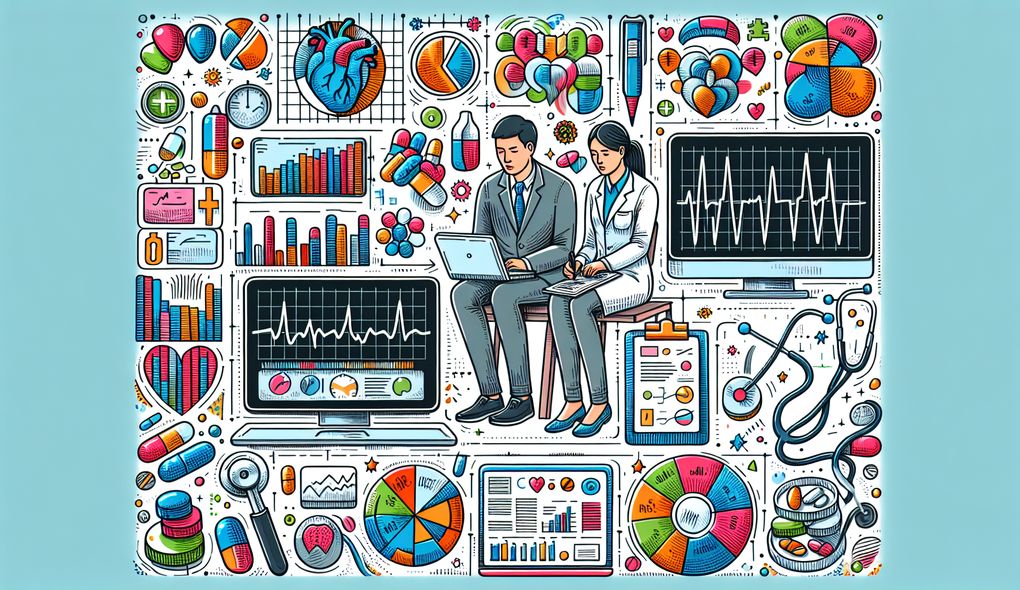How do you communicate complex data to non-technical audiences?
SENIOR LEVEL

Sample answer to the question:
When communicating complex data to non-technical audiences, I believe the key is to simplify the information without oversimplifying it. In my previous role as a Health Data Analyst, I would start by understanding the audience's background and familiarity with technical terms. Then, I would use visual aids such as charts, graphs, and infographics to present the data in a more digestible format. I would also break down complex concepts into relatable analogies or real-life examples to make it easier for the audience to grasp. Additionally, I would avoid jargon and technical terms as much as possible, and instead, focus on delivering the main takeaways and actionable insights. Overall, effective communication of complex data requires finding the right balance between simplification and maintaining accuracy.
Here is a more solid answer:
In my previous role as a Senior Health Data Analyst, I frequently communicated complex data to non-technical audiences including healthcare providers, policymakers, and executives. One example of this was when I presented the findings of a comprehensive study on healthcare utilization to a group of hospital administrators. To make the data more accessible, I created visually appealing and interactive dashboards using Tableau. I carefully selected the most relevant metrics and visualizations and tailored the presentation to the audience's level of technical knowledge. During the presentation, I walked them through the dashboards, explaining the key insights and trends in a simple yet informative manner. I also provided real-world examples and case studies to illustrate the impact of the data on patient care and resource allocation. The feedback I received was overwhelmingly positive, with many attendees mentioning that they were able to understand and act upon the information with ease.
Why is this a more solid answer?
The solid answer not only provides a specific example of the candidate's experience in communicating complex data to non-technical audiences but also highlights their skills in data visualization, audience adaptation, and impact measurement. However, it could benefit from additional details about how the candidate simplified complex concepts and managed audience engagement during the presentation.
An example of a exceptional answer:
During my tenure as a Senior Health Data Analyst, I successfully communicated complex data to non-technical audiences by leveraging my strong analytical and communication skills. In one particular project, I was tasked with presenting the results of a predictive modeling analysis to a group of stakeholders from various backgrounds, including healthcare providers, policymakers, and community representatives. To effectively convey the findings, I employed a multi-faceted approach. Firstly, I started by conducting a thorough needs assessment, interviewing key stakeholders to identify their informational needs and concerns. This allowed me to tailor the presentation to their specific interests and challenges. In terms of data visualization, I utilized interactive visualizations in Tableau, allowing the audience to explore the data on their own and gain a deeper understanding. To ensure clarity and engagement, I used storytelling techniques, presenting complex concepts using relatable scenarios and anecdotes. I also encouraged audience participation by facilitating Q&A sessions and small group discussions. By the end of the presentation, not only did the audience grasp the complex data, but they also felt empowered to apply the insights to their respective roles and contribute to data-driven decision-making.
Why is this an exceptional answer?
The exceptional answer not only provides a specific example of the candidate's experience in communicating complex data to a diverse group of stakeholders but also demonstrates their proficiency in conducting a needs assessment, utilizing interactive visualizations, employing storytelling techniques, and facilitating audience engagement. It showcases a holistic and strategic approach to communication. There are no major areas for improvement in this answer.
How to prepare for this question:
- Familiarize yourself with the key concepts and terminology in health data analytics, as well as the latest trends and advancements in the field.
- Practice simplifying complex data by presenting it to friends or family members who are not familiar with the subject matter. Ask for their feedback and adjust your approach accordingly.
- Become proficient in data visualization tools such as Tableau or Power BI. Explore different visualization techniques and experiment with creating interactive and engaging dashboards.
- Develop your storytelling skills to effectively convey complex concepts. Learn how to use relatable examples and analogies to make the information more accessible and memorable.
- Attend workshops, webinars, or conferences on communication skills and public speaking to enhance your ability to engage and captivate non-technical audiences.
- Stay informed about the latest research and best practices in effective communication of complex data. Read books, articles, and case studies on data storytelling and data visualization.
- Seek opportunities to present your work and practice your communication skills. This could involve volunteering to present at team meetings, industry conferences, or other professional events.
- Seek feedback from colleagues or mentors on your communication style and effectiveness. Take their suggestions into consideration and continuously strive to improve your skills.
- Stay curious and open-minded. Embrace feedback and learn from each presentation experience to refine your approach and become a more effective communicator of complex data.
What are interviewers evaluating with this question?
- Communication Skills
- Problem-solving Skills
- Analytical Skills

